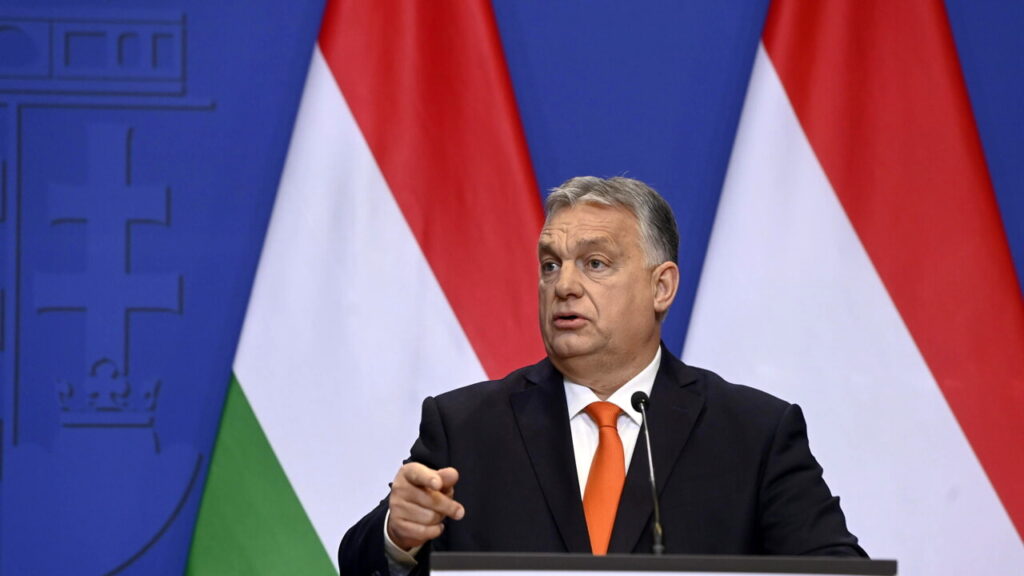The party of Hungarian Prime Minister Viktor Orban has endorsed bids by Finland and Sweden to join the NATO alliance, the Fidesz party’s parliamentary faction said on March 1.
“We will provide our support to Finland and Sweden’s NATO accession,” Fidesz said.
The party, together with a junior partner, controls over two-thirds of the seats in Hungary’s parliament.
The statement came as lawmakers opened a long-delayed debate on ratifying the entry of the two Nordic countries, which applied to join the 30-member alliance last year after Russia’s unprovoked invasion of Ukraine.
Lawmakers are expected to take a final vote in the second half of March.
NATO requires unanimity among its members to accept other countries into its ranks, and while most of them, including the United States, have immediately and unconditionally backed Finland and Sweden’s accession, Turkey and Hungary have yet to give them the green light.
“It is a complex decision, with serious consequences, so careful consideration is necessary,” Hungarian President Katalin Novak said on Facebook on March 1 ahead of the start of the debate in the legislature that is overwhelmingly dominated by right-wing nationalist Prime Minister Viktor Orban’s Fidesz party.
Turkey has mostly objected to the membership of Sweden, which it says has given safe haven to Kurdish groups that Ankara labels as terrorists, while Hungary says that the two Nordic countries’ membership needs careful consideration without airing any specific complaints.
But last week, Orban, who has a close relationship with Russian President Vladimir Putin, for the first time complained that the two NATO aspirants were spreading what he called lies about the state of democracy and rule of law in Hungary.
Under Orban, who has been in power since 2010, EU and NATO member Hungary has seen an accelerated slide toward authoritarianism and widespread corruption that prompted Brussels in November to propose freezing billions of euros of funds earmarked for Budapest.
The 27-member bloc demanded that Hungary implement credible rule-of-law and anti-corruption reforms if it wants that the money be released.
Orban has also antagonized European Union officials with his repeated criticism of EU sanctions targeting Russia for its war in Ukraine and his continuous attempts to hinder implementing new punitive measures against Moscow.
In his regular Friday interview with public radio, Orban on February 24 said that, while he is in favor of accepting the two new members, he also agrees with more radical lawmakers who say vaguely that “not all is well.”
“The other side says that we should have a word with these fine Finns and Swedes, because it’s not right for them to ask us to take them on board while they’re spreading blatant lies about Hungary, about the rule of law in Hungary, about democracy, about life here,” Orban told Radio Kossuth.
Novak, whose post is mainly ceremonial, said on Facebook, “My position is clear-cut: in the present situation, the accession of Sweden and Finland is justified. I trust the National Assembly will make a wise decision as soon as possible.”
But Orban’s chief of staff, Gergely Gulyas, has signaled that the debate may take some time.
“Based on Hungarian procedure, adopting legislation takes about four weeks, so it follows that parliament can have a vote on this sometime in the second half of March, on the week of March 21,” Gulyas said on February 25.
Last summer, the Fidesz-dominated parliament took only two days to approve an Orban-proposed tax increase on small businesses despite violent street demonstrations against it.
Source : rferl


